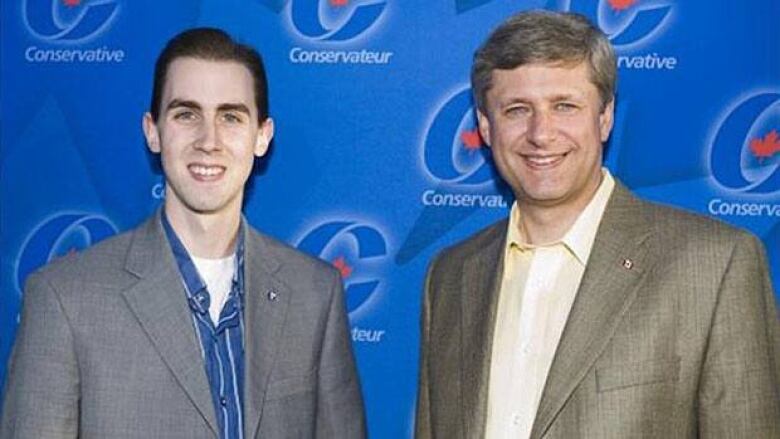What's next for the Guelph robocalls case?
Former Conservative campaign worker Michael Sona facing 1 charge

Now that a charge has been laid against Michael Sona in the case of misleading automated robocalls in Guelph, Ont., in the 2011 federal election, what happens next?
After nearly two years of investigating by Elections Canada, the Director of Public Prosecutions has laid a charge under section 491(3)d of the Elections Act, which prohibits preventing or trying to prevent a voter from casting a ballot. The maximum penalty is a $5,000 fine and five years in prison.
Sona, 24, was the director of communications for Conservative candidate Marty Burke in the Guelph riding where voters say they received misleading calls that sent them to the wrong polling station.
With only a single charge against one campaign worker, what comes next in the case of the misleading robocalls?
1. The court case
Sona's first appearance is set for May 3 in Guelph. While he may not enter a plea that day, his lawyer is already indicatingthey plan to fight the charge.
Who's who in the 2011Guelph Conservative campaign?
Marty Burke the candidate. A Conservative Party biography says Burke became an Air Canada pilot after retiring from the air force.
Ken Morgan the campaign manager. Morganleft Canada after the election and isnow teaching in Kuwait.
Michael Sona the director of communications. Sona faces a charge of preventing or trying to prevent a voter from casting a ballot.
Andrew Prescott the IT guy. Prescott was living in southern Ontario, but moved to Alberta last year.
Chris Crawford the voter outreach expert who dealt with the party's voter database, known as CIMS. Crawfordnow works for Peter Penashue, who resigned as MP for Labrador and as minister of intergovernmental affairs last month over illegal campaign donations.
Going to trialwill likelymean more information comes to light, in part, a former chief electoral officer says, because either the prosecution or defence cansubpoena witnesses who may have declined to be interviewed by Elections Canada investigators. They can also subpoena documents.
"[Sona] is claiming that he's innocent, which is his right, and in order to substantiate that he will want to bring witnesses to his cause," Jean-Pierre Kingsley said.
"Hemay know elements of what really transpired if he's not the one who did it. We know it occurred in Guelph, we know he was working there, we know he was not alone working there," he added, so, "if he knows things, he will have to start talking about those things in court, and if that brings to light the involvement of other people, those other people will have to bear witness and agree or disagree with what is being said. So that opens up a new ball of wax."
The court process could take years though.
2.The possible penalty varies
The Crown can choose between charging Sona with an indictable, or more serious, offence, or a summary offence. The maximum penalty for the indictable offence is up to five years in prison and a $5,000 fine, while the maximum for the less serious charge is up to one year in prison and a $2,000 fine.
The Crown could say whether it will be an indictable or a summary offenceon May 3, but could also waituntil the case goes totrial.
3. Parliamentcould update election law
The current chief electoral officer, Marc Mayrand,has asked Parliamentto update thepower he has to compelwitnesses to talk, as well as increase the amount of information parties have to provide to Elections Canada on their spending.
The House of Commonsadopted a unanimous motionby the NDP more than a year ago to:
- Give Elections Canada stronger investigative powers, including the ability to force political parties to provide supporting documents for their expenses.
- Require all telecommunication companies that provide voter contact services during a general election to register with Elections Canada.
- Make telecommunication companies identify and verify the identity of election clients.
The motion included a six-month deadline. It has now been 13 months, with Prime Minister Stephen Harper and Minister of State for Democratic Reform Tim Uppal telling the House that comprehensive reforms are coming "in due course."
4. The Federal Court needs to rule
The Federal Court is due to rule on a separate case in whichvoters asked the court to overturn the election resultin six ridings. The voters, backed by the Council of Canadians, argued there is evidence of a widespread campaign to suppress the vote and that the campaign benefited Conservative candidates.
The court was expected to rule around the end of March.












_(720p).jpg)


 OFFICIAL HD MUSIC VIDEO.jpg)
.jpg)



























































































